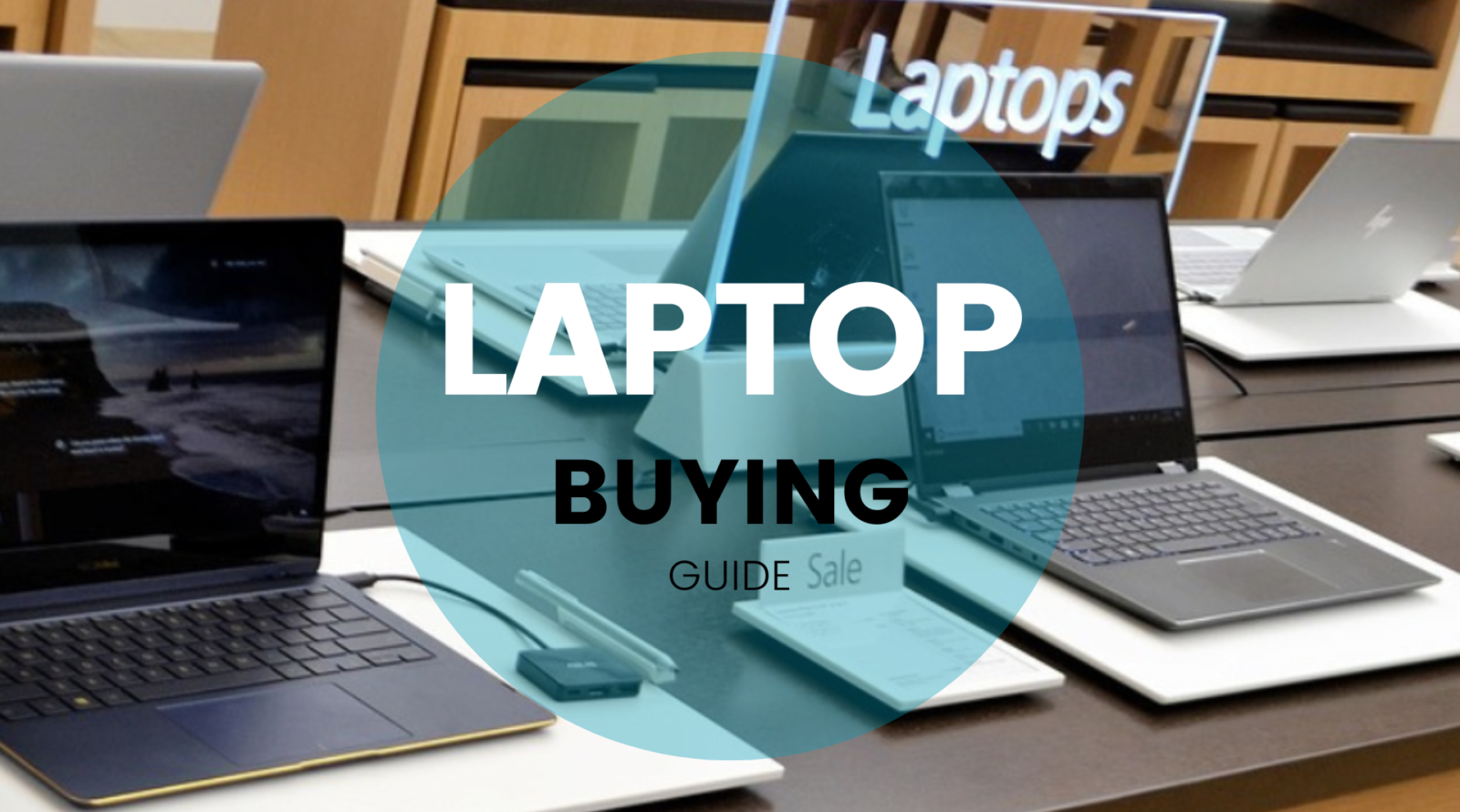Laptop Buying Guide – How to buy a laptop that suits your needs
This article is also available in:
 Arabic
Arabic  German
German  French
French
Buying a laptop can be a significant investment, and it’s essential to choose the right one that suits your needs. There are many factors to consider when purchasing a laptop. Here’s a comprehensive laptop-buying guide to help you make an informed decision:
- Purpose:
- Determine the primary purpose of your laptop. Is it for work, gaming, content creation, or general use?
- Operating System:
- Choose between Windows, macOS, or Linux, based on your preferences and software requirements.
- Size and Portability:
- Consider the laptop’s size and weight. Smaller laptops are more portable, but larger ones may offer better performance and screen real estate.
- Processor (CPU):
- Opt for a CPU that meets your needs. An Intel Core i5 or AMD Ryzen 5 is usually sufficient for general use. For more demanding tasks, like gaming or content creation, consider a higher-end CPU.
- RAM:
- Aim for at least 8GB of RAM for smooth multitasking. For power users or content creators, 16GB or more is recommended.
- Storage:
- Choose between an SSD (Solid State Drive) for speed and reliability or an HDD (Hard Disk Drive) for larger storage capacity. A combination of both (SSD for the OS and frequently used apps, HDD for data) is ideal.
- Graphics (GPU):
- Integrated graphics are fine for everyday tasks, but if you plan to game or do graphic-intensive work, consider a dedicated GPU from Nvidia or AMD.
- Display:
- Pay attention to resolution (Full HD or 4K), screen size, and panel type (IPS for better color accuracy, TN for faster response times in gaming).
- Battery Life:
- Longer battery life is crucial for portability. Look for laptops with at least 8 hours of battery life for general use.
- Connectivity:
- Ensure the laptop has the necessary ports (USB, HDMI, Thunderbolt, etc.) and wireless capabilities (Wi-Fi 6, Bluetooth) you need.
- Keyboard and Touchpad:
- Try out the keyboard and touchpad for comfort and responsiveness, especially if you’ll be doing a lot of typing.
- Build Quality:
- Consider the build materials (metal, plastic, etc.) and durability of the laptop.
- Brand and Warranty:
- Stick with reputable brands known for quality and customer support. Check the warranty and support options available.
- Price and Budget:
- Set a budget and stick to it, but also be willing to invest a bit more for a laptop that meets your needs. Remember that quality often comes at a higher price.
- Reviews and Recommendations:
- Read reviews and seek recommendations from friends or online communities to get insights into the laptop’s real-world performance and reliability.
- Upgradeability:
- Some laptops allow for component upgrades (RAM, storage), while others are more locked down. Consider your future needs when evaluating this aspect.
- Security:
- Look for features like a fingerprint sensor, webcam shutter, and TPM (Trusted Platform Module) for enhanced security.
- Eco-friendliness:
- If sustainability is important to you, research laptops that are made with eco-friendly materials and have energy-efficient components.
- Accessories and Software:
- Consider any additional accessories you may need, such as a laptop bag, mouse, or external monitor. Also, think about the software you’ll require.
- Future-Proofing:
- Think about your laptop’s longevity. Will it still meet your needs in a few years? Consider specifications that will keep it relevant for a while.
Remember that the best laptop for you depends on your specific needs and preferences. Take your time researching and comparing options to find the perfect balance of features, performance, and price.

